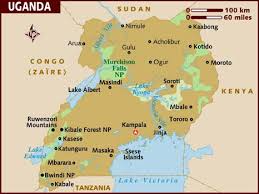 Controversial plans for the “export” of 283 Ugandan medics to the Caribbean have been halted after the foreign affairs ministry said most of those shortlisted were government employees and so ineligible.
Controversial plans for the “export” of 283 Ugandan medics to the Caribbean have been halted after the foreign affairs ministry said most of those shortlisted were government employees and so ineligible.
Activists in the east African nation say the government is now scared after its plan to send doctors, nurses, midwives and other specialists to Trinidad and Tobago met fierce opposition.
Donors have also been critical of what has been branded a government-sanctioned brain-drain, with Belgium freezing 11 million euros ($12 million) in aid.
On Friday, foreign affairs spokesman Fred Opolot told AFP the process was “on hold, awaiting a cabinet decision”.
“The majority who applied and were shortlisted were from government institutions,” he said, after the state minister for health, Dr Chris Baryomunsi, told local media that this contradicted ministry policies.
With government employees blocked, Opolot said that if the government approved the scheme it would mainly “target the private sector and those who are unemployed.”
But he insisted the idea remains “fantastic” and claimed that Uganda has more than enough health workers at home.
“Clearly we have many unemployed health care workers who we cannot absorb into the current health system,” said Opolot.
Asia Russell, executive director of AIDS advocacy organisation Health GAP, said the idea was “still crazy”.
“The unemployed can and should be absorbed,” she said, adding that Uganda had an “acute shortage” of health professionals.
Officials have said the scheme, which will lead to 100 midwives leaving the country, was merely part of the country’s bilateral cooperation with Trinidad and Tobago, from which the country has also benefitted — with aid such as oil and gas industry training and financial support for its police.
But activists stress that the tiny Caribbean country has a doctor to patient ratio that is 12 times higher than Uganda’s.
The plan has been criticised by the United States, which gives $400 million (357 million euros) in aid to Uganda’s health sector every year.
In a bid to downplay the controversy, government officials have publicly claimed that the Belgian aid money has been “restored” but a spokesperson for the Belgian Embassy in Kampala told AFP this was not true.
“The 11 million euro budget support is still on hold, but not cancelled,” the spokesperson said.
Activists, who claimed the shortlisting process was riddled with corruption, have warned that service delivery will suffer if the aid suspension continues.
An interim injunction to halt the export of the workers sought by a Ugandan think-tank was dismissed last month while a ruling in the main case is still pending.



